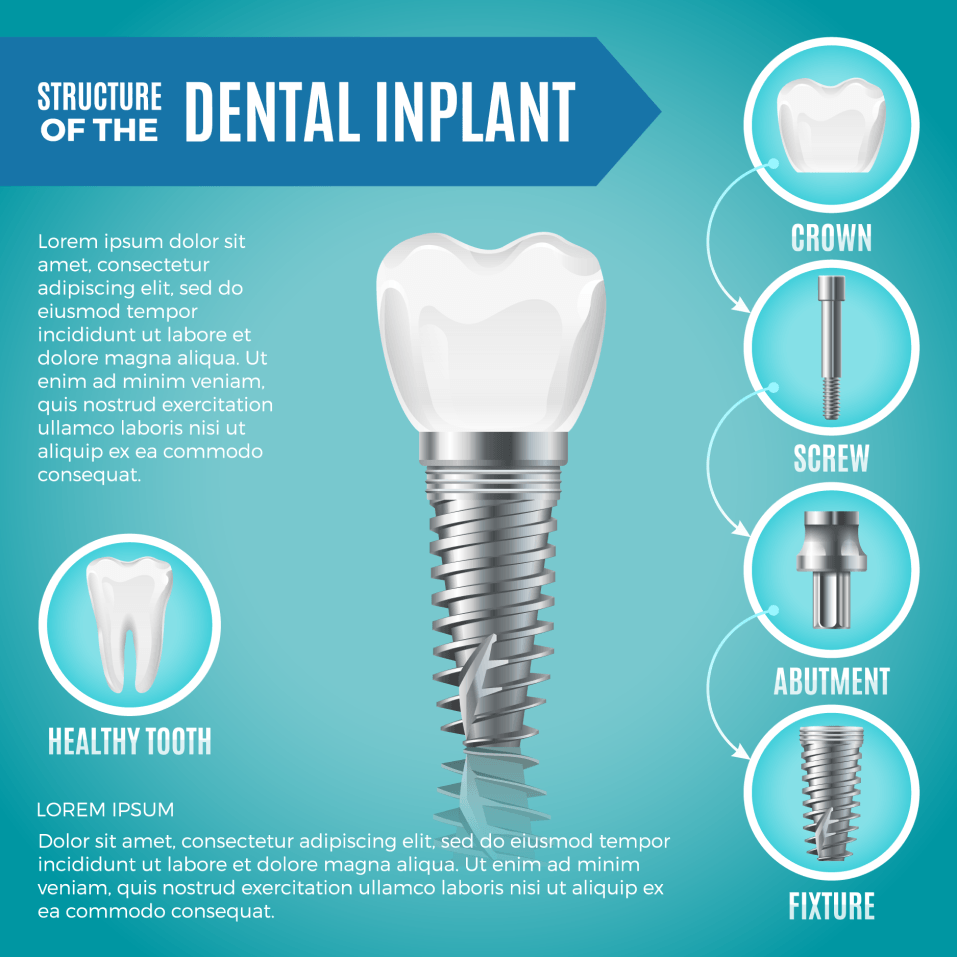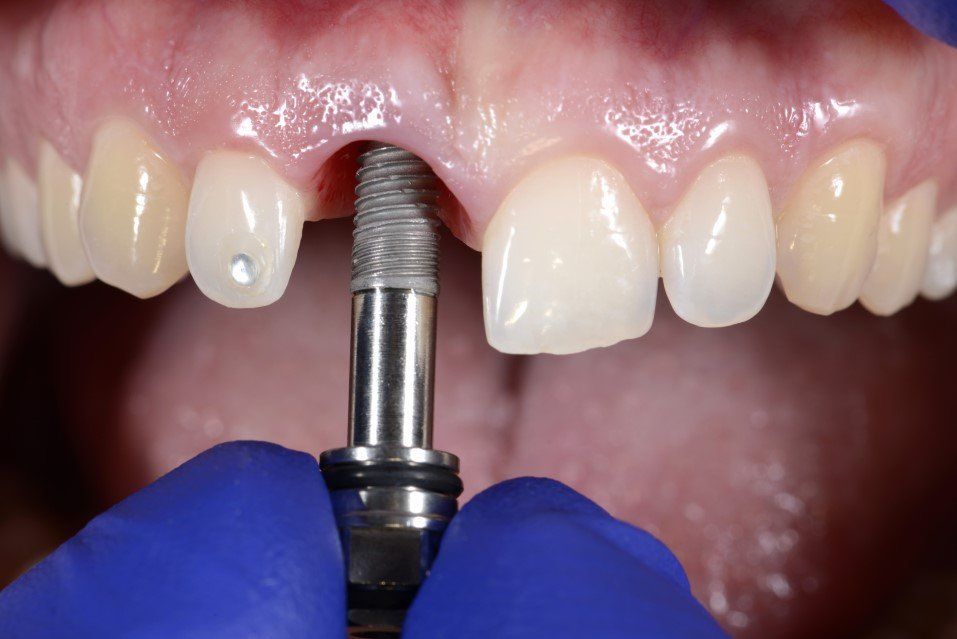Single Tooth Implants
What are immediate implants?
Immediate implants mean you want the implant placed in the site on the same day the tooth is extracted. Dr John Webster can provide immediate implant surgery and often fit a temporary crown/tooth replacement on the same day. Whilst this sounds fast and easy the process does require accurate planning prior to the day of surgery with a digital oral scan and CT scan to define the optimum location for your implant and tooth replacement crown. If you have not undertaken a CT scan prior to consultation, one of our team will be able to arrange for a CT scan referral for you to arrange prior to attending on the day of your consultation.
What are the traditional methods for single tooth implants?
The large majority of single tooth dental implants are placed in a delayed way (over a specific time period). This is because in many cases there may be inadequate bone present for placement of the implant and a grafting procedure may be required first, allowed to heal and turn into good quality natural bone in 3-6 months, before returning for dental implant placement.
If grafting is not required, then traditionally the dental implant is placed and buried under the mucosa (gums) for 3-6 months to allow implant fusion to the bone (osseointegration) while you wear a temporary tooth replacement option. After the healing time you return for abutment placement and then the permanent customised crown can be fitted.
For people with a medical condition, such as diabetes, post cancer therapy and osteoporosis, it is recommended that they have implants applied in the traditional method. In these scenarios and many others, traditional implant placement is advised to achieve the high long-term success rates of 98-99%.
How are single tooth implants maintained?
Upon treatment completion you are advised to maintain your dental hygiene through regular flossing and cleaning. Regular check-ups with your usual Dentist is required for the continuing health of natural teeth. The long-term success rates will not be achieved if this new implant and tooth are not cared for in a regular way. Check our Dental Implant Maintenance section of the website for further information.
What are the costs of single tooth implants?
- Do you need a separate grafting procedure before the implant can be placed?
- Do you need the tooth removed prior to implant placement?
- Do you want immediate implant placement or traditional delayed?
- Do you want or need a temporary tooth replacement during healing phase?
- Do you want local anaesthetic or general anaesthetic treatment for each step?
- Do you want fully guided surgery to improve the accuracy of placement and success?
- Do you want a specific brand of implant?
How can the costs of single tooth implants be reduced?
Private health insurance with hospital and extras can greatly offset these costs as many parts of your procedure can be rebated by private health funds through extras and some parts if treated in an accredited day surgery or hospital if you have hospital cover.
As Dr John Webster is a Specialist Oral and Maxillofacial Surgeon, he is dual qualified as both a medical and dental specialist and therefore he can provide you Medicare and Health Fund Gap Cover schemes for medical procedures such as bone, soft tissue and sinus lift grafting procedures in many cases increasing the implant success without increasing your out of pocket costs. Other general Dentists and Dental Specialists such Prosthodontists and Periodontists do not have access to Medicare or Health Fund Gap Cover schemes for medical procedures hence cases where grafting is required the costs have to pass on to you.






